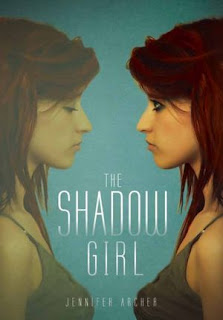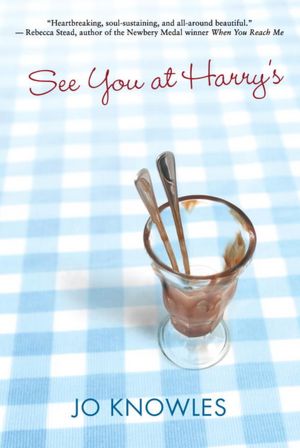By Erin Morgenstern

I recently finished
The Night Circus, and my first advice for any prospective reader is the following: read this book in one sitting. I read it in five hours, albeit on an international plane ride that lasted foreeever. I'm not a fast reader, by my friends' standards, but this book takes ahold of its reader in a way that makes it impossible not to rip through it. On that note, I demand that everyone be a prospective reader.
The Night Circus was singularly the most beautiful, most elegant, most achingly lovely book I've ever read. If I had to describe it simply, I'd say it's
Harry Potter meets
Hunger Games meets
The Great Gatsby meets
Chime meets pure literary magic. If you're still here, rather than running for the bookstore or for the kindle webstore, seriously. It got me through an eight hour plane ride. Some books leave you aching and empty when you finish them, unable to imagine enjoying any other book; a reader's nightmare and holy grail. When I finished
The Night Circus, I sat (rather uncomfortably...thanks, Delta) dazed for a long time...
Superfreakonomics was in my backpack, but I just couldn't imagine picking it up. Anyone who's read
Freakonomics will know this for the high praise it's meant to be; I've been waiting for years to read
Freakonomics' sequel.
In case you're at this point neither an offended economist nor gone to a bookstore, I'll give a brief synopsis of the plot. The plot spans from 1873 to 1903 and the focal point is mostly London in the late Victorian era. Prospero the Enchanter is an illusionist performing with a mundane circus, but he himself is nothing of the sort. He lives with a secret, but he doesn't hide it; he performs in public for thousands of people, passing his illusions off as mechanical sleight of hand, albeit of the highest possible calibre. He is lying, for he is a strongly gifted magician. His tricks are real, powerful, and completely flabberghast the public, who remain blissfully unaware of his true talents. His doves have no concealed cages, and his disappearances are not through trap doors. In the words of the man himself: "[Other illusionists] are a bunch of fish covered in feathers trying to convince the public they can fly, I am simply a bird in their midst. The audience cannot tell the different beyond knowing I am better at it." He is stunned when his daughter shows up out of nowhere, all of five years old, her mother's suicide note pinned to the cloth of her jacket. He starts to show his true self already at this point, ignoring the emotional impact of the suicide note and instead preparing to dismiss the girl, but she breaks his teacup, showing all the innate talent and gift he enjoys while struggling with her temper. He immediately takes her in and starts teaching her to use the magic of the universe, at the same time summoning an old acquaintance.
This man, henceforth The Man in the Grey Suit or Mr. A. H--, accepts Prospero's terms. A challenge is agreed upon, and the little girl is the first player, bound by a charm and spell to prepare, her entire life, for the challenge. The Man in the Grey Suit vanishes after promising to find his own student, but first he and Prospero agree on "the venue"--a circus.
The Night Circus. Mr. A H-- finds his own pupil, Marco, and the two students settle into their training independently and with absolutely no contact or knowledge of the other. Celia's father slices her fingertips open, each and every one repeatedly, until she can heal all ten at a time, and the Man in the Grey Suit brings Marco all around the world without introducing him to any people at all; he spends his days locked in a library, at first, and then the MitGS brings him to a flat in London, completely abandoning the boy with only a vague warning: keep preparing for the challenge.
The circus is made, the acts found, Marco and Celia independently bound to it, one as the manager's assistent, one as a performing Illusionist. The challenge begins. The circus is their playing field, the only rule "no intereference", and the winner is decided upon the other's death. A previous winner of the challenge shares, hauntingly, that "[My] opponent is now a pillar of ash standing in a field in Kyoto... Unless wind and time have taken her away."
What makes this book such a surpassing pleasure and privilege to read? The characters, the setting, the writing, the sheer poetry of a book scribed in prose.
The characters are, simply, stunning. What one will find all too often in fiction is that there are a few archetypes that dominate, their authors leaving the characters' characters simply up to the reader's imagination for full detail. If this is not the case, it is because there is one or two characters at most whom the author affords a personality. Even the characters in Harry Potter aren't as well crafted as these, and they've had SEVEN books to grow through. Lord of the Rings isn't about the characters; it's about the plot. Katniss and Peeta are shallow compared to Celia and Marco.
The Night Circus is very much about the characters. Erin Morgenstern crafts each and every character, scores of them, with the masterful precision of an artisan. After finishing the book I know each character's motivations, their loves and peeves, what makes them tick and breathe and toss and turn in the night. I can imagine their reactions in any situation I can think of and I know why the plot runs as it does. There is absolutely no outside power in the book; no government, no natural disasters, not even the limitations of staying in one geographic locale.
The Night Circus is its own world, and it moves like a whisper through the larger universe. Every singular event in the book is a result of one character's actions, one character's growth and wishes and dreams, one character's will. The duel in this book isn't a magical battle, a straight-up fencing match with two sides and a whole lot of roaring fire and wind. The battle is for the hearts and souls of the characters, of
the Night Circus at large. Morgenstern writes two sets of siblings, for Pete's sake, that are linked solidly--so solidly that in any other book they would not be diverse characters. Lainie and Tara Burgess should, by all rights, be indistinguishable sisters; they are described as seemingly identical and their personalities are perfect complements and almost identical, but they are
so much more. I can't do them justice, so read the book. There's also a set of fraternal twins who grow up in the exact same circus environment, but both are completely different and at the same time perfect together. Such a pleasure to read great characters.
There's romance, but I can't really review romance, but I will say that it's one of the veeeeeeeeeery few romances I have ever liked in books. Really. My friends will tell you. I usually hate romance. This romance was very, very awesome. That's all the justice I can do it.
I should discuss a bit of the Night Circus as well, being that it is the setting and title, but I think I'll leave it for you, the reader, to discover by yourself. Pure magic and poetry. Erin Morgenstern wrote little segments in between parts and acts to immerse the reader into the Night Circus on its own right; these parts are exquisite and embracing.
I don't know how much more praise I can give this book, and I guess I can say that I can't give this book enough praise. This book gets as much five-stars as I'll ever be able to give a book. This book is now the standard of a book for me.
If this review hasn't convinced you to run out and get it RIGHT NOW, please run out and get it RIGHT NOW and sorry that my review wasn't convincing enough.






























